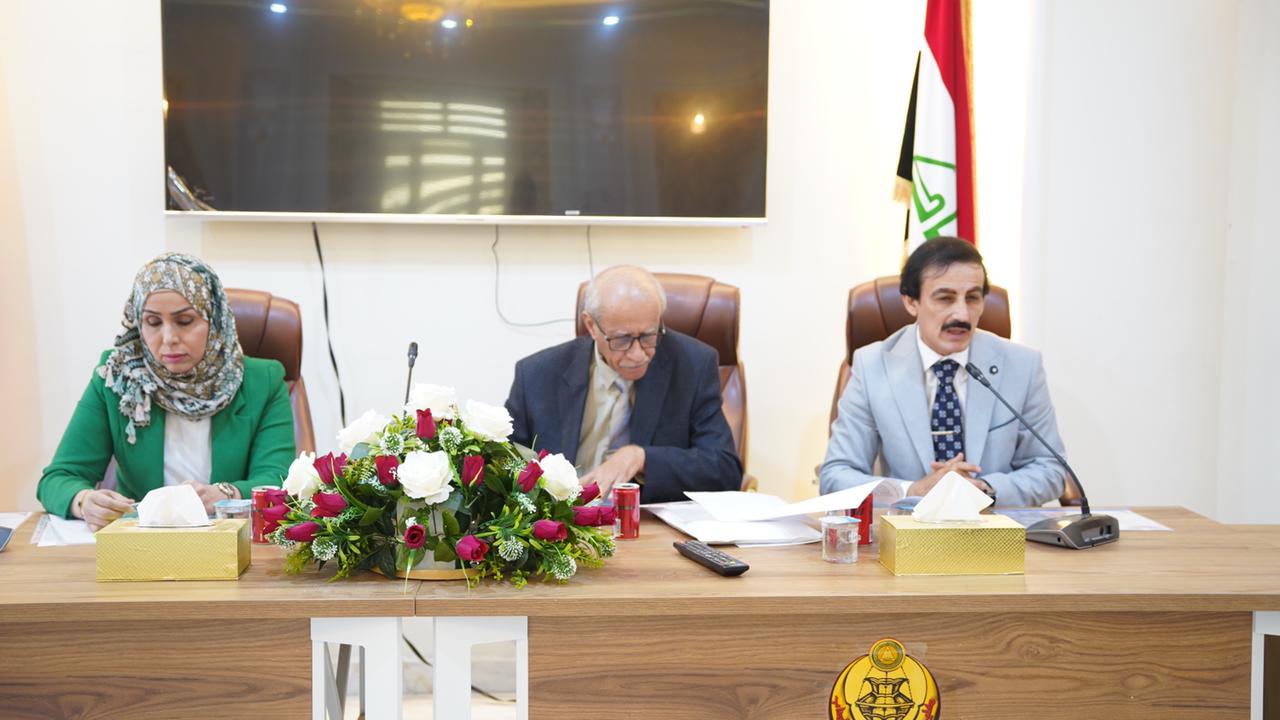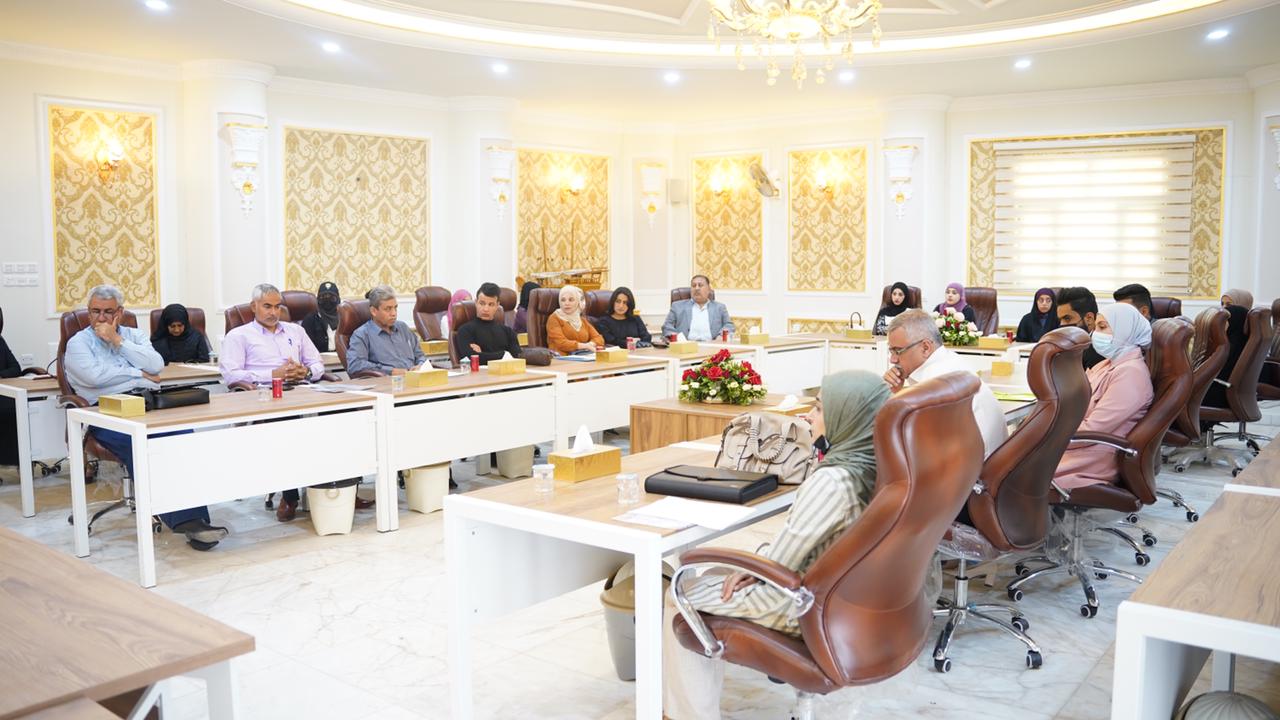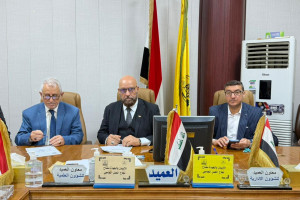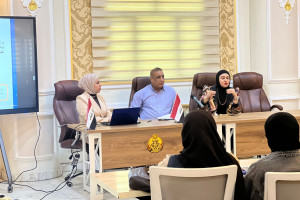


On Sunday, 27/3/2022, the Department of Geography and Geographical Information Systems organized a scientific symposium entitled (Energy Sources and Industry in Southern Iraq - Reality and Challenges).
The symposium, which was presented by Prof. Dr. Faris Mahdi Muhammad the instructor at the College of Education for Human Sciences and the instructor Dr. Nadia Nuri Ali, aims to identify the continuous industries in the first AH centuries, as well as to identify the possibility of using raw materials in solid waste in Basra in order to produce electrical energy and to identify the problems of transmission and distribution of electric power in southern Iraq.
The symposium included several topics, the most important of which were:
1- Solid waste and its investment in energy production.
2- The challenges of the air transport industry in light of the Corona pandemic.
3- Transmission problems in the distribution of electric power.
4- Reality of the challenges of industrial plots of land.
5- Classification of industries during the first four AH centuries.
In the symposium, the researchers called for:
1- Reconsidering contracts for licensing rounds to cover and benefit from the experiences of neighboring countries in treating associated gas.
2- Benefiting from the experiences of neighboring countries in investing in natural gas.
3- Benefiting from solid waste in Basra governorate with the large increase in population and environmental pollution in the governorate.
4- Holding symposium and lectures to educate citizens about the process of solid waste disposal and preservation of Basra environment.
5- Commitment to Law (38) of 1999, which is the obligation to renew the contract every five years with a rental allowance not exceeding (3%) of the value of the land and renew the contract every five years without public auction.
6- Expanding the industrial zone (Hamdan Industrial) by constructing a bridge over the existing oil pipeline in the area in order to benefit from the wide areas in that industrial zone.







